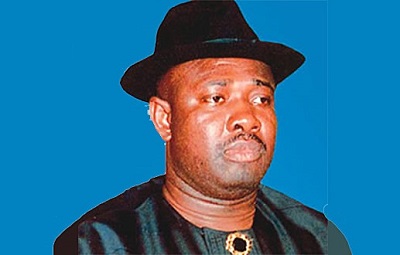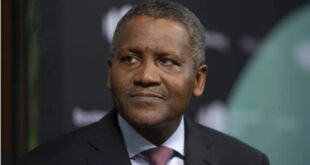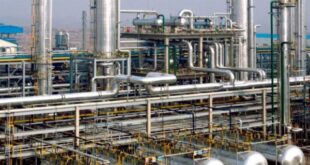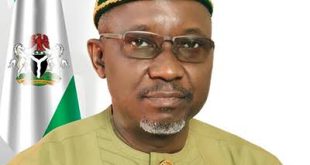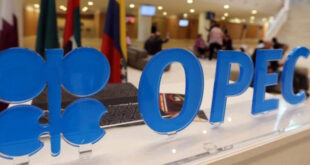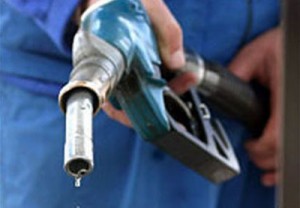 The Minister of State for Petroleum Resources, Ibe Kachikwu, on Monday announced the Nigerian government’s plan to revert to the old pump price of N97 per litre for Premium Motor Spirit, popularly known as petrol, in 2016.
The Minister of State for Petroleum Resources, Ibe Kachikwu, on Monday announced the Nigerian government’s plan to revert to the old pump price of N97 per litre for Premium Motor Spirit, popularly known as petrol, in 2016.
Mr. Kachikwu stated this while defending the Petroleum Ministry’s projections contained in the 2016 to 2018 Medium Term Expenditure Framework,MTEF, and Fiscal Strategy Paper, FSP, before the Joint Senate/House of Representatives Committee on Finance, Appropriation and Banking, Insurance and other Financial Institutions.

He explained that the Nigerian economy could no longer support the current price of N87 per litre.
On January 18, 2015, the former Minister of Petroleum Resources, Diezani Alison-Madueke, announced the reduction by N10, as a result of the slide in the international price of crude oil.

But on Monday, Mr. Kachikwu, who is also the group managing director of the Nigerian National Petroleum Corporation, disclosed the government’s plan to reverse the price of the product to N97 per litre as part of the measures to end the subsidy regime.

If the government realises that even N97 per litre would cost it extra funds in subsidy, it would resort to total removal of subsidy, Mr. Kachikwu said.
The minister said, “The total subsidy figure for 2015, when taken along with the NNPC’s subsidy payment, will be in excess of N1tn. The current pricing work we are doing has shown that there shouldn’t really be subsidy. The government doesn’t need to fund subsidy.
“There is energy around the removal of subsidy. Most Nigerians we talk to today will say that’s where to go. I have since left the dictionary of subsidy by going to price modulation, which is a bit more technical.
“The price of refined petrol today is N87. It was N97 before it was reduced and we really have to go back to that because we don’t really have the finance to fund it. There are lots of safety barometers between the N87 and N97per litre regime. The government does not have to fund subsidy and yet the prices would have been fairly close to what it is today.
“That is the first mechanism we are going to work with. It is when that mechanism fails that we will begin to look at a total subsidy exit. We believe we can achieve that.”
On the oil price benchmark of $38 per barrel which caused division between members of the Senate last week, Mr. Kachikwu said the projection was based on the outcome of the Organisation of Petroleum Exporting Countries’ conference.
He also expressed confidence that the price of crude oil would increase as from early January to “around $50 per barrel in spite of OPEC projections”, adding that it might also hit $70 per barrel in 2017.
Stating further, he said Nigeria’s oil production had been exceeding two million barrel daily since August this year.
According to him, this was a result of stringent monitoring and pipeline security.
To meet the next year’s production target of over 2.4 million barrels, he said, “A lot of efficiency has really been applied in this regard. The NPDC will, for instance, be producing 300,000 barrels on its own, while other partners would process at least 2.2 million barrels.
“We would address issues of security and other impediments to the realisation of our target. We are looking at a collective and holistic handling of security issues between the NNPC and the oil majors with us taking the lead.”
Speaking on strategy to reduce costs of governance, the Finance Minister, Kemi Adeosun, explained that the Federal Government had taken measures to ensure accountability revenue at ministries, departments and agencies.
Also present at the briefing were Minister of National Planning, Udo Udoma; Central Bank of Nigeria Governor, Godwin Emefiele; Director-General, Debt Management Office, Abraham Nwankwo; and Chairman, Federal Inland Revenue Service, Babatunde Fowler, among other.
 MMS PLUS NG – Maritime, Aviation, Business, Oil and Gas News Online Newspaper with coverage in Maritime, Oil and Gas, Aviation, Power and Energy as well as Financial News
MMS PLUS NG – Maritime, Aviation, Business, Oil and Gas News Online Newspaper with coverage in Maritime, Oil and Gas, Aviation, Power and Energy as well as Financial News



